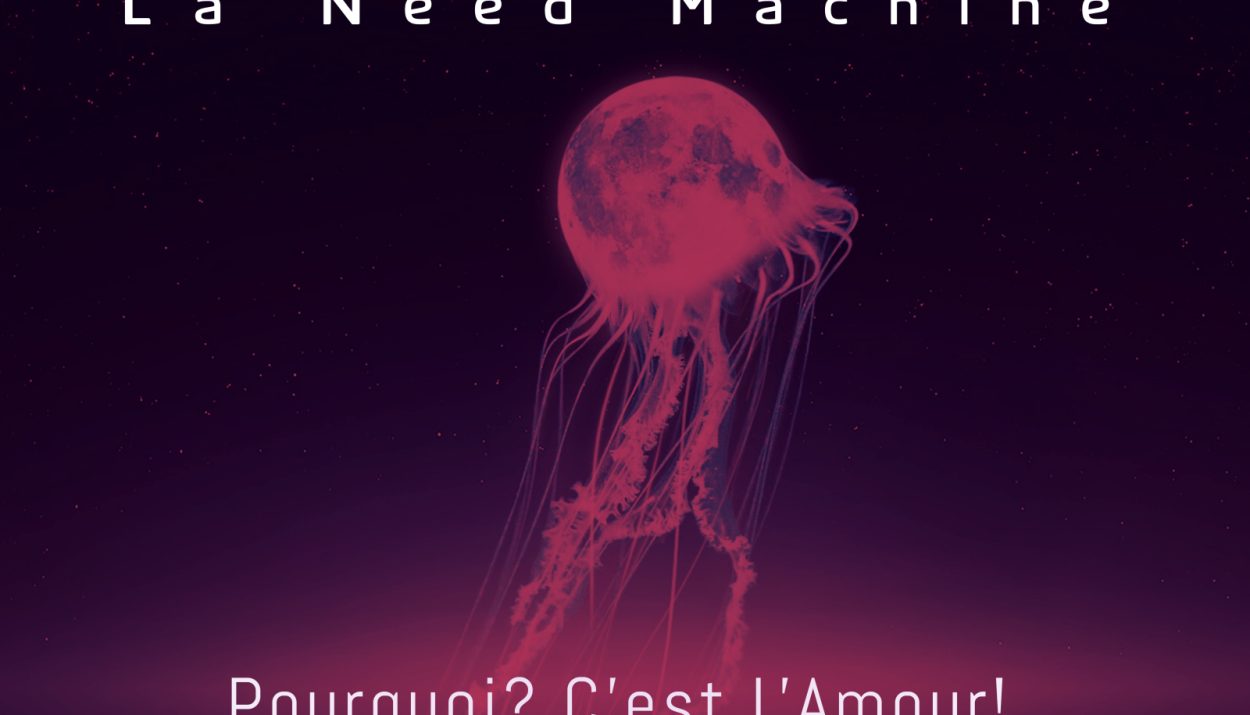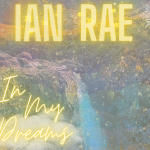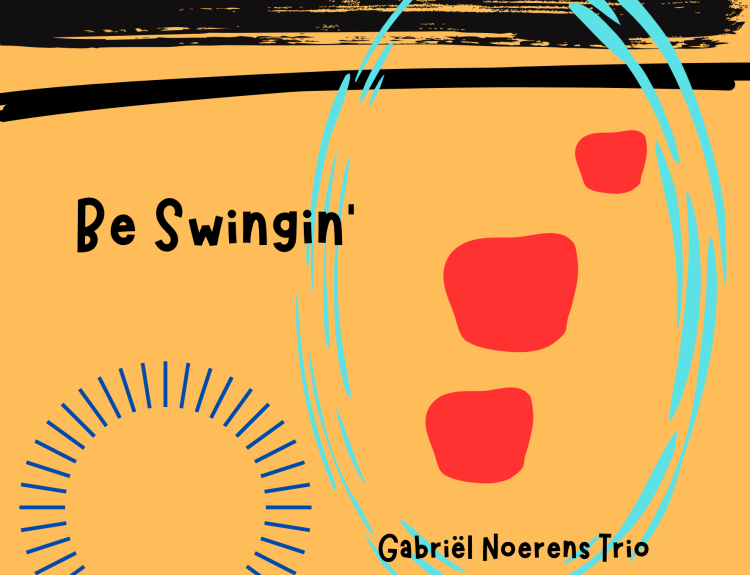There’s always something special and exciting about a band that refuses to sit still. For returning readers, La Need Machine is no stranger to this blog. Hailing from Seattle, this collective has consistently delivered emotionally resonant music laced with powerful lyricism, genre-fluid arrangements, and inclusive narratives. Now, with “Pourquoi? C’est L’Amour!” they reach a new creative zenith, creating a beautiful album where each track is a self-contained world and contributes to a brilliant whole. Released on April 8, “Pourquoi? C’est L’Amour!” is full of soaring harmonies, fierce musicianship, and storytelling timed perfectly for the emotional landscape of 2025. This is an album that holds your attention and feeds your soul.
The album opens with a track that feels like a personal anthem and a universal celebration rolled into one titled “Our Song.” The vocal harmonies—shared delicately between Elise, Brian, Dawn, and Sebastian introduce their signature blend of male-female dynamics. The cello and saxophone wrap around acoustic guitars, creating a heartwarming texture. Lyrically, it’s a love letter to shared memories and enduring connections. It’s about the beauty of co-writing life with someone else.
Driven by dreamy keyboard swells and a playful yet poignant rhythm section, “I Wish I Could Fly” flutters with longing and imagination. Elise’s vocals are especially commanding here—her neurodivergent perspective adds emotional depth as she sings of freedom and the yearning to escape limitation. The production is clean but colorful, allowing the hopeful message to shimmer through.
Not to be mistaken for the classic, this rendition of “Over the Rainbow” is a gentle meditation set to a mellow, string-led arrangement. Sebastian takes the lead here, delivering a performance that’s restrained yet moving. The saxophone adds a nostalgic air, hinting at dreams held close during tough times. It’s tender, poetic, and quietly luminous.
Here, the album takes a cinematic turn. “The Mountain” is all grit and glory—a metaphorical climb laced with pulsing percussion and layered guitar riffs. Al Dams brings out sharp, melodic phrasing that heightens the track’s tension and triumph. The cello adds weight, grounding the emotional stakes. Brian and Dawn share vocal duties, building an anthemic peak by the final chorus.
This ballad centers on longing and missed connection. With its Latin-tinged rhythm and swelling strings, “Maria” stands out as a genre-bending gem. Elise sings with aching clarity, while the keyboard and saxophone dance in the background like flickers of memory. The band doesn’t rush here—they let every note breathe.
Art meets emotion in the bold and expressive “Vincent Van Gogh” that brings the troubled genius of Van Gogh into modern conversation. The instrumentation is raw and textured—gritty guitar work layered with haunting cello lines. Vocals are theatrical but never overdone, channeling the chaos and clarity of a mind that saw the world differently. It’s a standout in both theme and sonic execution.
A folksy, nostalgic tune that feels like sitting on a front porch reminiscing. The production in “These Old Jeans” is stripped-back, letting the acoustic guitar and Elise’s expressive vocals carry the story. It’s a tribute to resilience, to the comfort found in familiarity. The band keeps it simple, which makes the sentiment hit even harder.
Witty, biting, and delightfully off-kilter, “Sardonic Love” leans into irony without losing sincerity. The tempo is brisk, with jagged guitar lines and unexpected chord changes that keep the listener guessing. Dawn’s vocals shine here, delivering sharp lines with a knowing smirk. It’s one of the most cleverly arranged songs on the album.
“The Hometown Heroes,” is for the underdogs. With anthemic drums, bold guitar riffs, and strong ensemble vocals, it’s a tribute to everyday resilience. The production is polished and punchy, with the band firing on all cylinders. The saxophone solo midway through is surprising and soulful—a reminder of La Need Machine’s fearless approach to instrumentation.
The closing track, “Over the Rainbow (Pop Version)” circles back to familiar ground but adds a sleek pop sheen. Bright synths, tighter drum loops, and a more radio-friendly structure make this version sparkle differently. It feels celebratory—like a curtain call after a powerful show—and gives Elise one final moment to shine with an uplifting vocal performance.
Bear Davis, the album’s producer, deserves accolades for balancing the band’s complex palette. From cello to saxophone, from lush harmonies to jangly guitar riffs, every layer is given room to breathe while still contributing to the album’s driving force. Nothing feels overproduced; everything feels intentional. La Need Machine’s use of nontraditional rock elements—especially the cello and sax—elevates their sound beyond standard indie fare. Each band member brings a distinct flavor, yet it’s the harmony of all these voices (both literally and figuratively) that gives Pourquoi? C’est L’Amour! its emotional punch.
With Elise’s proud embrace of her life with Autism, the band models authenticity and vulnerability in a world that often hides it. Their sound is joyously diverse, their lyrics meaningful, and their spirit—unshakably human. “Pourquoi? C’est L’Amour!” is a triumphant album for turbulent times. It doesn’t pretend to solve the world’s problems—but it reminds us, song by song, that love, art, and connection still matter. And in that, it becomes something extraordinary.
Listen to “Pourquoi? C’est L’Amour!” on Spotify
You can follow La Need Machine here for more information.






